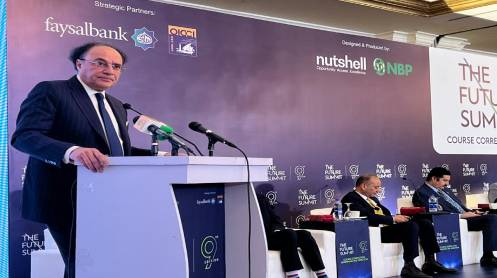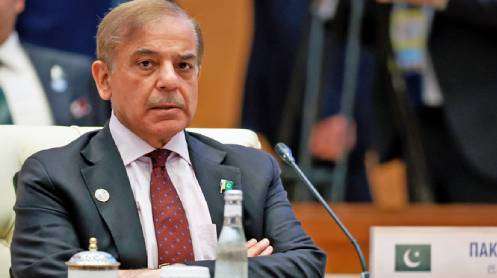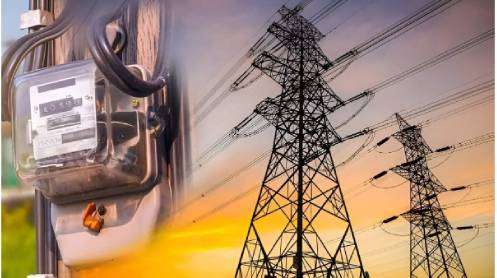KARACHI: Federal Minister for Finance Muhammad Aurangzeb announced that the government has decided to privatize 24 state-owned enterprises as part of its economic restructuring plan. He revealed that 39 federal ministries are being merged under the government’s rightsizing initiative, while the privatization of PIA will be completed before the end of this year.
Addressing the 9th Edition of The Future Summit, the finance minister emphasized that the private sector must lead Pakistan’s economic growth, adding that production-based development is the only sustainable path forward. He noted that Pakistan’s economy is moving in the right direction, with its macroeconomic stability being recognized globally, and international rating agencies acknowledging the country’s improving outlook.
Aurangzeb highlighted that AI-driven growth and digitalization will bring greater transparency and efficiency to the economy. He said Pakistan ranks among the world’s top three freelancing nations and has the potential to become a major export hub. The minister also shared that 900,000 new tax filers have been added, while corporate profits have increased by 9%. He added that Google plans to establish Pakistan as an export hub, with special focus on the IT and maritime sectors.
He further underlined the vast potential in the Blue Economy, noting that several international investors now view Pakistan as an attractive destination for business and investment. “Macroeconomic stability is not the end goal—it’s the foundation for restoring investor confidence,” he remarked.
The finance minister confirmed that the privatization agenda is being pursued vigorously, with the First Women Bank’s privatization already completed, while efforts are underway to privatize PIA and three power distribution companies (DISCOs). He added that 70% of the ministry merger process has been completed, with redundant departments being closed and employees offered market-competitive compensation packages.
Aurangzeb concluded by emphasizing the need to address challenges such as population growth and climate change to ensure sustained economic progress.







